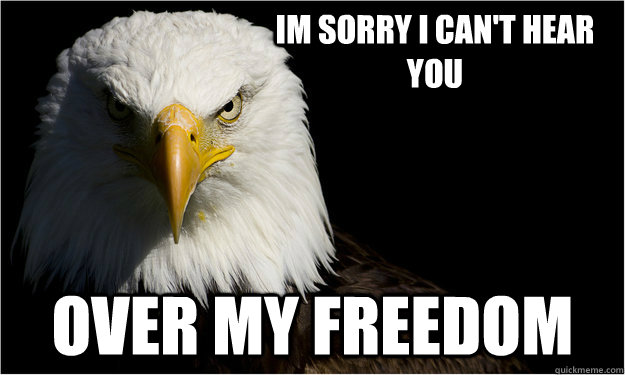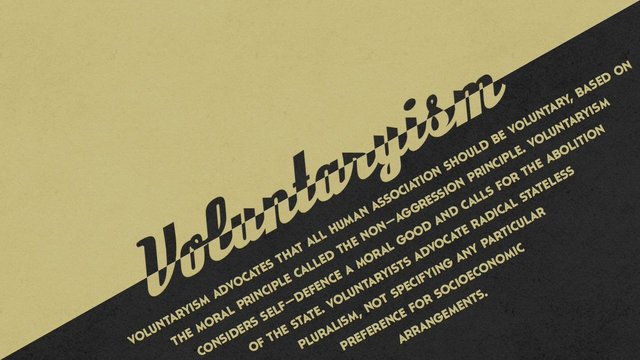Patriotism & Nationalism: Are they the same?!
At some point early on in my intellectual journey, I rejected the concepts of nationalism and patriotism in a heat of anti-state fervor. The two terms seemed so hopelessly intertwined in the modern day language that it seemed more prudent to toss both to the way side.
Now that I’m a little older (and hopefully a little wiser), and after listening to individuals who actually are older and wiser such as Ben Stone (the Bad Quaker), my position continues to evolve and become more nuanced.
Here I will attempt to make an argument for patriotism, and an argument against nationalism in the context of Voluntaryism and a free society.
So let’s get cracking with some definitions!
Side note: language can be frustrating, because it continuously evolves. Definitions and usage change. I used to fight this. Now I understand it’s better to learn the history of words and language. Words are powerful, respect them. You may not agree with the definitions I use, but for the sake of simplicity and, more importantly, the communication of IDEAS, just try and go with it. :)
From Merriam-Webster:
Patriot - one who loves his or her country and supports its authority and interests.
Nationalist - a member of a political party or group advocating national independence or strong national government.
Country and nation are almost always meant to refer to a coersive government in modern day conversation. However in the past, ‘country’ could refer to one’s home, birthplace or literally just land. Nation used to mean a society, community, or an ethnic group. Both have been hijacked by the State and its cronies in order to bamboozle people to shift their identify and loyalty to the State, instead of that which they truly value, such as family, culture, etc.
Obviously, these definitions are current working definitions and extremely statist. This is why I rejected both terms.
Now for the hypothetical.
Assume that a voluntary free society exists. This is a society where all interactions between individuals are voluntary. There is no coercive government, but there is governance. Various communities have different social and economic structures. Some are more socialist, others are capitalist (or agorist if the C-word grinds your gears). There is great variety and differences. The bedrock of this society is the Non-Initiation of Aggression and Voluntary Interaction between consenting individuals. Individuals and groups who don’t adhere to these principles aren’t tolerated.
This society isn’t perfect. There is still conflict, crime and so forth. However the degree of this conflict is a fraction of that which occurred in a society which believed in the deity of the State, and ruled by a coercive government.
And now to my point: What would one call a member of such a society?
We all have family, friends and even communities and cultures we are loyal to and love. Undoubtedly, if you lived in such a society and cherished the incredible freedom to do as you wished with your own body and possessions with whomever you wanted, you would be hard pressed to give that up without a fight.
If you have a love for family, friends, community and home, you are a patriot as it used to be understood. This could even apply for nationalist, as ridiculous as that seems.
It’s important to understand that a geographical location and the government which claims to rule it are not the same thing, regardless of the propaganda that has been pushed by collectivist of all stripes to sell this idea. Which is why it’s ridiculous to claim that “France invaded Germany”, “America bombed Hiroshima”, or “We are the government”. One can “love America” while loathing the government which claims jurisdiction over the geographical area of that makes up America.
Of course if you reject the ideology of a coercive government, it would be paradoxical to call one’s self a patriot or a nationalist, given that the current working definition of both is unwavering loyalty to the government which considers you its slave, and to the religion of Statism.
I propose therefore, that you change the way you think about these terms. The following are my definitions of patriot and nationalist.
My definition of patriot:
An individual who loves, is loyal to, and willing to defend their home, family, friends and community against the initiation of aggression.
My definition of nationalist
An individual who loves, gives loyalty to, and is obedient to their government and their god, the State.
Here we have a pretty clear distinction between two individuals with polar opposite values. One which could be a member of a free society, and another who is the willing pawn of a gang of criminals.

